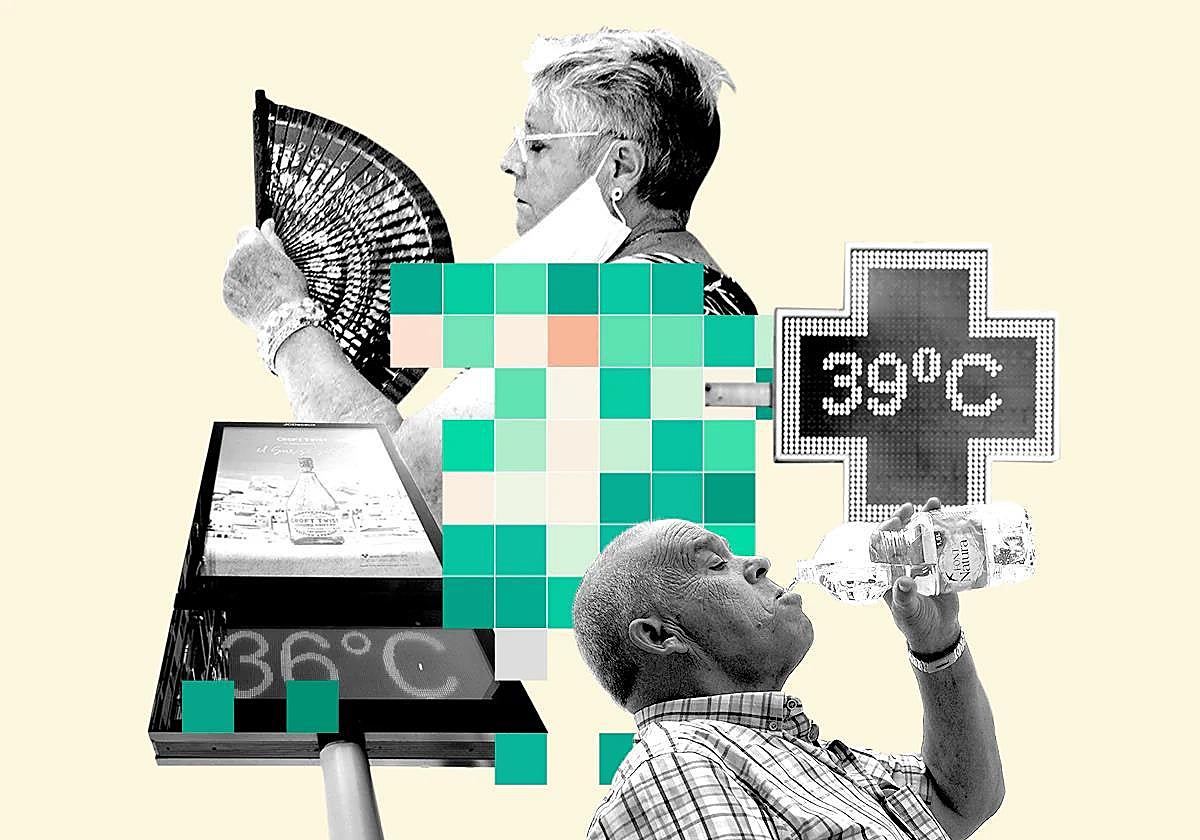Heat-related deaths drop by half in Malaga province this summer
The decrease coincides with a fall in temperature of almost 2.5C on average during July and August this year
The summer, which will end in a couple of weeks, has been very hot in Malaga and on the Costa del Sol, but slightly less than last year. One of the signs indicating this is that heat-related deaths in the province have fallen by half this summer compared to last year.
According to Spain's Instituto de Salud Carlos III - an agency operating under the national ministry of science that has been recording this data since 2015 - the figure stood at 93 deaths due to heat last year - 3.7% of the province's total deaths.
However, in July and August 2024, and still according to the Carlos III institute, heat-related deaths in Malaga fell to 44 out of a total of 2,183 deaths, which represents 2% of all deaths. The data for the whole Andalucía region is also better this year compared to last, with Seville's figure standing out, dropping from 139 deaths in 2023 to 29 this year.
But is the data linked to a drop in temperatures? The answer, on the basis of the data, is yes. What the data reflects is a drop in temperatures which is directly affecting health, according to Dr. Miguel Marcos, medical director and head of the internal medicine department at the Hospital Quirónsalud Málaga.
Last year, 29.4 and 28.9C were the recorded averages in July and August. There were also 51 and 41 deaths in each of these months. In 2024, the average temperatures in July and August in Malaga were 27 and 28.8 degrees, resulting in 17 and 27 deaths in July and August, respectively.
Women over 65
As for the profile of those who have died in the heat, the situation has not changed from one summer to the next. Once again, it is women who are most affected, although it has become noticeably more balanced. Whereas in 2023, some 83% of those who died were women, in 2024, the figure was around 61%.
Heat-related deaths in Malaga in the summer of 2024
27 women
61% of the total
Age also plays a role in whether heat affects people more or less. Last year, 88.7% of deaths were linked to people over 65 years of age, while in 2024 this percentage has increased to 91.2. Dr Marcos said that statistically there are many more older women. "As we get older we have less capacity to concentrate water in the body, and this translates into fewer resources to overcome dehydration," he said.
Heat-related deaths in Malaga in the summer of 2024
44 people aged 65 and over
91.2% of the total
This improvement in the province of Malaga (and also in almost all of Andalucía) contrasts with the rest of Spain, where a total of 1,386 deaths due to extreme heat were reported in August - 615 more than in July, when 771 were recorded, according to the Carlos III Health Institute.
This is an increase of 3% compared to August 2023, when a total of 1,345 heat-related deaths were recorded. In total, 3,148 deaths from high temperatures have been recorded so far in 2024, according to the daily all-cause mortality monitoring system (MoMo).
Pending the end of the summer period, experts predict this summer could surpass the 3,009 deaths recorded during the summer season in 2023. In fact, by 22 August, the number of deaths was already higher than the same period last year with 906 deaths (+47%).
The most dramatic figures were recorded in the first 15 days of August. The worst week this month and so far this summer was the one that began on 29 July, when a total of 611 deaths were recorded in just seven days. The regions most affected in August were Catalonia (274 deaths) and Madrid (251). They were followed by Castile and Leon (175), Castile-La Mancha and Valencia (both 126), Galicia (96), Aragon (82) and Andalucía (76).

